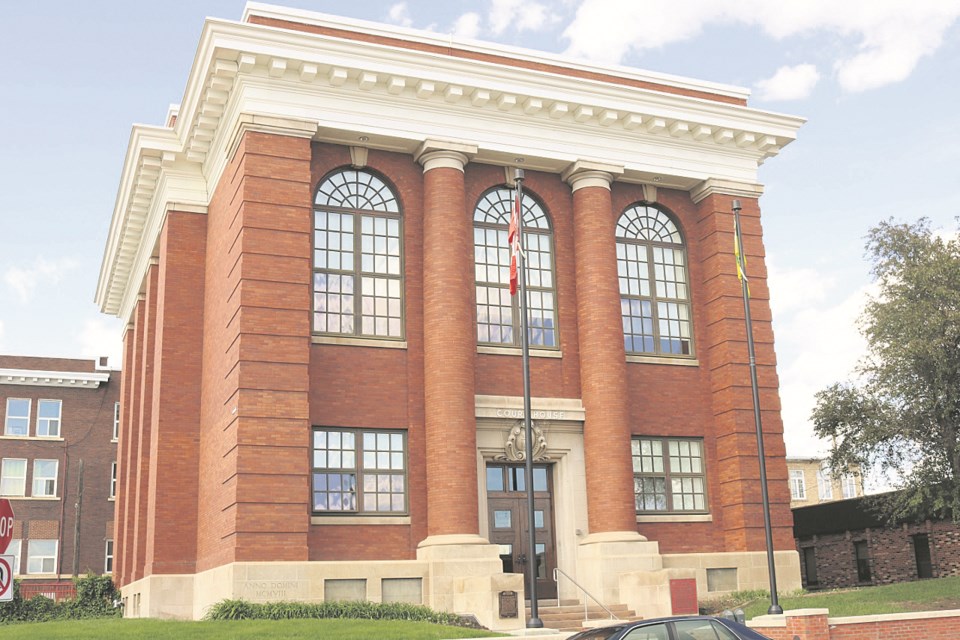A Saskatchewan judge has denied a Heritage Inn application for a restraining order against its union’s actions to picket and distribute leaflets on the edges of its property during a lockout.
Justice D.G. Gerecke, with the Court of King’s Bench, released his decision late last year after the operators of the hotels in Moose Jaw and Saskatoon applied to have the actions of United Food and Commercial Workers (UFCW) Local 1400 limited or prohibited.
Background
The judge’s decision contained a timeline of the parties’ collective bargaining efforts.
The groups have been without a contract since 2019, while the pandemic interrupted their bargaining efforts. Negotiations resumed in early 2023 and broke down in late summer, with the employers locking out the union on Sept. 7, 2023. However, two days earlier, the employers offered the employees contracts to keep working throughout the lockout.
The union began picketing the morning of the lockout, with the employers alleging picketers engaged in wrongdoing on hotel property and the union acknowledging it was not permitted to picket on the property.
Union members also started handing out leaflets on hotel property on Sept. 7 to staff who crossed the picket line, which the employers argued amounted to trespassing and inducing a contract breach. The employers then sought an injunction against the union for its picketing and leafleting.
“For the reasons that follow, I find that the employers have failed to establish a basis for an ongoing injunction concerning the union’s conduct on the picket line,” Justice Gerecke wrote.
Throughout his report, the judge relied on past case law outcomes from similar King’s Bench and Supreme Court decisions to bolster his arguments.
Evidence ‘scant and unsatisfactory’
The judge stated that it was inappropriate to grant an injunction because, during the court hearing, it was apparent that the evidence about the hotels’ property lines was “scant and unsatisfactory.”
Specifically, the Saskatoon property lines were not clearly or reliably shown, while in Moose Jaw, the documents showed nothing about property lines even though the employer argued the fences provided that evidence.
Breaches of duty
Not all picketing that inconveniences the employer and its customers is barred because, in part, section 2 (b) of the Charter recognizes it as a legal and protected form of free expression, said Justice Gerecke. Picketing “has long been recognized as an ‘essential tool in the economic arsenal of workers in the collective bargaining process … .’”
“Labour disputes, including picket lines, often have rough and tumble characteristics. Emotions can get fiery. Often what is litigated falls in the realm of extreme situations,” he continued. “Counsel were unable to point me to a case that might be viewed as a ‘close call.’”
If the courts specify a delay, then it should reflect a minimal infringement on union members’ right to free expression and should provide a reasonable time to communicate their message. Moreover, unions can use picket lines to put economic pressure on employers if the conduct does not become criminal. Therefore, complete blockades are prohibited.
‘Vague and unattributed statements’
Justice Gerecke found that the employers failed to establish the seriousness of the picketing even though they filed three affidavits that allegedly demonstrated that picketers engaged in wrongful conduct.
However, many affidavit statements did not satisfy certain requirements since some contained “many vague and unattributed statements.”
The employers submitted photos of the picketers allegedly obstructing access to the property, but the union argued the pictures showed no blocking of traffic, an argument with which the judge agreed.
Meanwhile, all union signs were placed adjacent to the road, so it was up to the municipalities to enforce restrictions if they desired, the judge continued. Also, while a customer alleged that a picketer’s dog jumped onto his vehicle, the justice was skeptical since a photo showed the dog was the size of a chihuahua.
Of all the evidence the employers filed, Justice Gerecke determined that it was nothing more “than trivial breaches by the union” and did not support restraining its activities.
Leafleting vs. picketing
The judge discussed the differences between leafleting and picketing and looked to past Supreme Court of Canada decisions for support. Specifically, the former does not impede access to a site, while the Supreme Court viewed leafleting as “indistinguishable from a legal consumer boycott campaign.”
Yet, the employers argued the leafleteers breached The Trespass to Property Act and committed wrongdoing by inducing a contract breach. Moreover, they argued that the province treats both actions as the same under the law.
Justice Gerecke disagreed, saying Saskatchewan legislation does not regulate picketing; there was also not enough evidence to show it was “inflicting genuine (economic) harm” since those activities were peaceful.
A Supreme Court decision showed that leafleting aims to persuade the public through informed and rational discourse that “is the very essence of freedom of expression,” he pointed out.
The judge accepted the union’s “compelling” argument that to impose an injunction would infringe on its freedom of expression since it would irreparably lose the ability to communicate its message, affect negotiations, weaken its bargaining stances and empower the employers.
Justice Gerecke said the union should have the opportunity to control its members’ picketing behaviour — it has already made “reasonable efforts” to do that — because, if their actions deteriorate, the court could revisit the situation.
He also determined that the union should be reimbursed $2,500 for its application.




